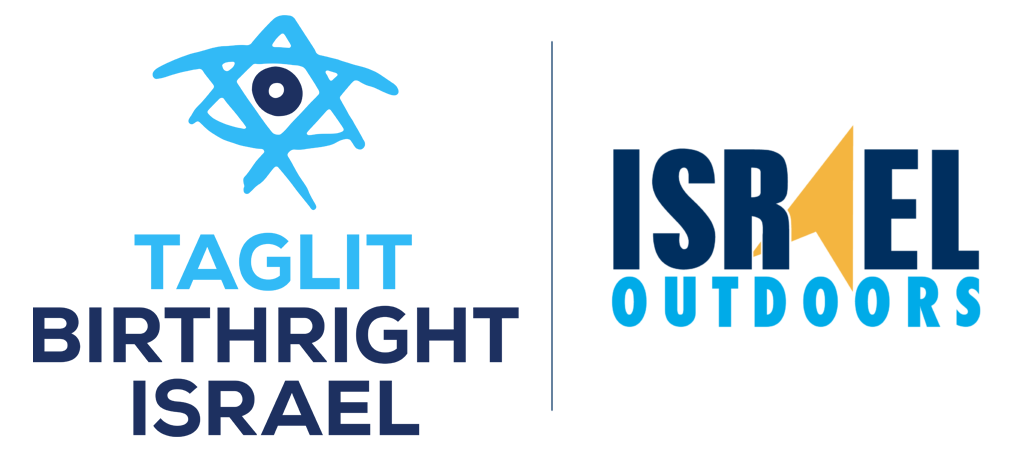ACCOMMODATIONS IN ISRAEL
In Israel, you and your fellow travelers will stay in a mix of hotels and kibbutz guest houses. Each room will house three (3) people and will be single-gender only; you will be allowed to choose your own roommates, although sometimes your trip leaders may choose for you. Of course, everyone gets their own bed and each room has a bathroom with a shower. Exact accommodations will be posted as part of your full itinerary approximately 3—4 weeks prior to departure.
You will not have access to laundry facilities while you’re in Israel, and this is a very active trip; we suggest you plan and pack accordingly.
MONEY MATTERS
SPENDING MONEY IN ISRAEL
While this is a free trip, you'll still want to bring some money! Two meals/day are included, so you should have money for lunch. You may occasionally want to buy bottled water (although tap water is safe), snacks, drinks, souvenirs, etc. We recommend you bring $200-$250 USD ($270 - $335 CAD).
ACCESSING THE LOCAL CURRENCY
Israel uses the shekel as its currency, and each shekel is worth about 25—30 American cents. If you are bringing dollars to Israel, a currency exchange representative will meet the group as we board the bus at the airport and exchange a minimum of $100 USD / $130 CAD. The exchange rate provided by this representative is better than what is available inside the airport —and much faster!
You should also bring a debit or credit card to Israel; cards with a Visa or Mastercard logo work throughout Israel. If your ATM card is not part of Visa/Mastercard, you should check with your bank to make sure it will work in Israel. Finally, notify your bank or credit card company (in advance) about your travel plans to avoid the potential suspension of your account due to irregular activity.
TIPPING
In Israel, it is customary to tip both the tour guide and the bus driver. The program is jam-packed, and you will soon see that the guide and driver work around the clock to ensure the success of your experience.
Our advice is that $100 USD / $130 CAD in total is an appropriate gratuity for 10-day trips and $70 USD / $90 CAD for 7 or 8-day trips. It is not customary to tip your North American staff or the Israeli guards.
ELECTRICAL CURRENT
If you plan to bring small electrical appliances to Israel, keep in mind Israel uses a 220-volt electrical current, and the outlet types are different as well (two circular prongs). In order to avoid "frying" any electrical items, bring a voltage converter (note: this is already built into most laptop computers). You will also need a simple adapter to plug your items into the wall.
DIETARY CONSIDERATIONS
All group meals, including meals on the plane, are kosher (as certified under the supervision of the Chief Rabbinate of Israel). You will typically be purchasing one (1) meal per day (usually a light lunch), and you are free to eat whatever you choose. People with special dietary situations (i.e. lactose intolerance, vegetarian, etc.) should contact us in advance to make proper arrangements for the flight and during the program itself.
MEDICATION & CONTACT LENSES
If you take medication, we recommend you bring enough to last the entire time you expect to be in Israel. We also recommend you pack your medication as part of your carry-on luggage in case your checked luggage is delayed. If you have a notable medical condition, please inform us in advance —remember this is all for your safety (note: all medical records are kept confidential).
WATER
Israeli tap water is perfectly safe to drink. If you prefer bottled water, it is widely available and is inexpensive. We recommend buying a bottle of water when you arrive and refilling it with tap water for the rest of the program.
PERSONAL PROPERTY
The trip is only 7-10 days, and we are constantly on the move. We recommend leaving expensive electronics at home. Whatever you bring, your personal property is exclusively your responsibility at all times. Although theft is not common in Israel, it does happen.
FREE TIME AND REST
Our program is jam-packed with touring and you will find that 7-10 days is a very short time to be in Israel. There will certainly be some downtime on the trip, and we suggest you use that time to relax and re-energize. If you would like to visit with friends or family members while you are in Israel, your best option is to extend your ticket and meet up after the program. If you can only meet during the program, the best time for visiting with family is on Saturday afternoon, which is typically a relaxed time during the trip. Keep in mind that Birthright Israel rules do not allow for leaving the group under any circumstances.
SHABBAT
Shabbat is the day of rest, starting on Friday at sundown through twilight on Saturday. During the trip, there will be a public observance of Shabbat. Nothing in the program will force or encourage participants to violate the rules of Shabbat (or any other Jewish holidays that fall within the trip). How you choose to observe Shabbat is totally up to you. Keep in mind there will be participants on your trip of all Jewish backgrounds, and we only ask that each person be respectful of everyone else's individual choices.
PACKING TIPS
Keep Your Feet Happy!
We cannot stress this enough: bring comfortable, light-weight walking shoes! On group hikes and nature walks, you'll be required to wear closed-toed shoes (no Crocs). You do not need to purchase special hiking boots, but participants have found rugged outdoor shoes (like Merrells or trail running shoes with tough soles) to be very useful. We do a lot of walking on our trips, and when your feet are happy, YOU are happy.
Most of our trips include water activities. We recommend bringing an extra pair of shoes that can get wet and stay on your feet while you are being active. Adventure sandals with supportive straps (such as Chacos, Keens or Tevas) are perfect for this —you'll be glad you have them when going into the Dead Sea, rafting, and during water hikes!
MODESTY AT THE WESTERN WALL
Israel is a casual country when it comes to dress. However, we will be visiting some religious sites such as the Western Wall where "modest" clothing is appropriate. On these days, women should wear clothing that covers their shoulders and knees. We suggest bringing a scarf or cardigan to throw over your shoulders, and a skirt that can be easily pulled over shorts for a more "modest" look. Pants or capris are also acceptable. Men should have their shoulders covered on the days where religious sites are on the itinerary.
SHABBAT ATTIRE
On Friday night, the pace of the trip slows down as we transition to celebrate Shabbat. To create a special atmosphere, we celebrate Shabbat with a fancier dinner. We recommend bringing something a bit nicer for Shabbat. A good rule of thumb is to bring something "a step up" from what you wear on a daily basis. Low-cut, strapless, and mini clothing should be avoided. A polo or buttoned-down shirt with khakis or nice jeans is appropriate for men.
STAYING HYDRATED
The sun is much stronger in Israel. Carrying a water bottle is mandatory, as your body will require much more frequent hydration than you are probably used to —between 2-4 liters of water per day. Alumni have found CamelBaks or other hydration pouches to be very helpful for both carrying water and personal belongings when on the go. Israelis often recycle their plastic store-bought bottles of water by refilling them from the tap (which is safe to drink!). If you don't have a water bottle or CamelBak, we will be making plenty of stops where you may purchase water.
LUGGAGE - SUITCASES
You will be responsible for carrying your luggage to the airport and between the bus and hotels, so pack your belongings in something you are comfortable carrying! We recommend a rolling duffel bag with wheels: big enough to contain all your clothes for 10 days, but not too big that you go over the size and weight limits for your flight (generally 50 lbs).
LUGGAGE - DAY PACKS
We recommend bringing a small daypack or backpack to carry around your daily essentials when touring: wallet, water bottle, camera, hat and extra layers (depending on the season). This bag can double as your carry-on for your flight.
Short sleeve shirts and shorts (or pants)
1 sweatshirt and/or sweatpants (the desert gets cold at night!)
Shabbat/modest clothing
Underwear & socks
Pajamas
2 bathing suits
1 towel
1 hat for hikes
Adventure water shoes
Comfortable walking shoes
Toiletries
Sunscreen
Sunglasses
Flashlight
Alarm clock
Camera
Power adapters/converters for electronics
Medication (if prescribed), *must place in carry on luggage, not checked bag
A combination of short & long sleeve shirts and pants
1 sweatshirt & sweatpants
1 warm coat (e.g., fleece jacket)
Raincoat
Shabbat/modest clothing
Underwear & socks
Pajamas
1 bathing suit
1 towel
1 hat for hikes
Adventure water shoes
Comfortable walking shoes
Toiletries
Sunscreen
Flashlight
Alarm clock
Camera
Power adapters/converters for electronics
Medication (if prescribed), *must place in carry on luggage, not checked bag
Optional Items
Journal
Frisbee, hacky sack, etc.
Guitar
Hand sanitizer
Over the counter meds (Tylenol, Dayquill, band-aids, etc.)
Snacks (granola bars, trail mix, etc. – especially if you are a picky eater!)


